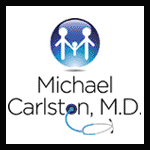Those of you who have seen me for treatment of seasonal allergies, as well as others who have been reading my newsletter for awhile, will remember my comments about and advocacy of oral allergy desensitization. I like developing and providing uncommon but effective treatments, because people need help and there are many underappreciated means of helping. It is still surprising to me how slowly anything outside the spotlight of orthodox attention catches on.
After studies showed that peanut allergy, the most deadly food allergy in the US, could be safely cured in 75% of children through oral desensitization, I thought the dam would finally burst. Wrong.
Two large scale trials of treating ragweed allergy by oral desensitization were recently published, with similar results. Maybe this time? I believe so, and here is why:
Clinical trials typically show that conventional prescription drugs for allergies reduce symptoms by roughly 20-25%. Oral desensitization, using small doses of ragweed pollen, led to a 25-27% reduction in symptoms and medication use. Approximately half of the participants experienced itching in their throats or ears for several days, early in the four month treatment period.
I am not at all surprised by these findings. The product I developed, made from local bee pollen in a tightly controlled dilution dosage, has been effective, and usually more effective than prescription medication. Merck is now developing an oral ragweed allergy product for the American market. I hope this approach, which has been used informally in a number of ways in the past, will be more extensively applied. When a major pharmaceutical company finally becomes interested, the odds are now strongly favoring this approach, long ignored in the US, becoming widespread.
